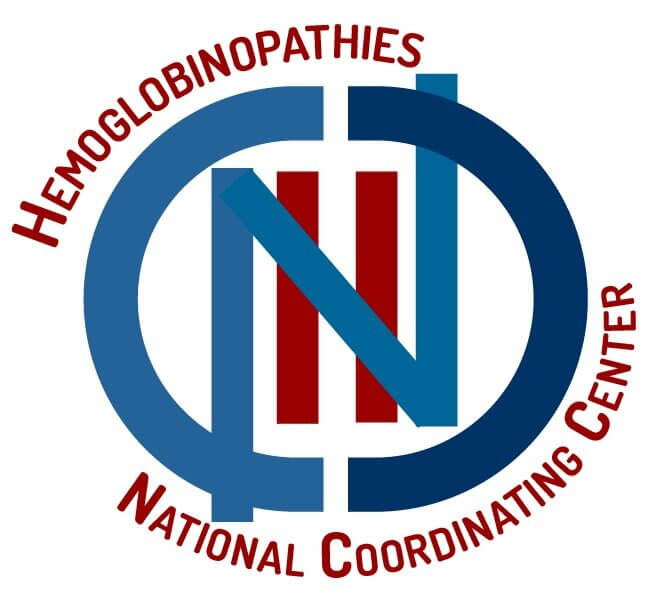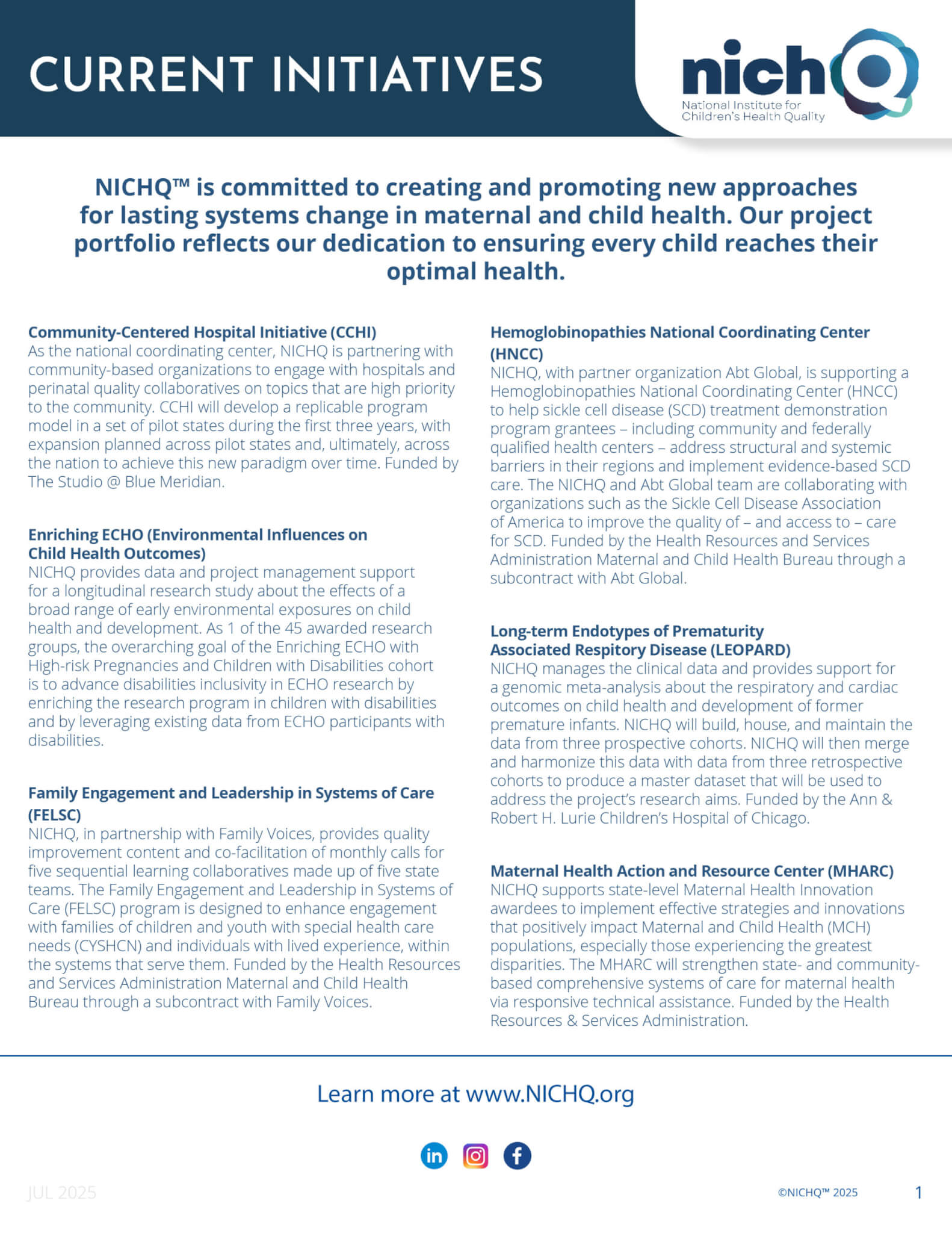Hemoglobinopathies National Coordinating Center
NICHQ collaborates with Abt Global to manage the Hemoglobinopathies National Coordinating Center (HNCC) and provide support to sickle cell disease healthcare providers and community-based organizations.


Providing support to expand access to high quality care for people with sickle cell disease.
Sickle cell disease (SCD) is an inherited blood condition that affects an estimated 100,000 Americans. In the United States, more than 90% of people with SCD are non-Hispanic Black or African American and estimated 3%-9% are Hispanic or Latino (CDC, 2024). While newborn screening for SCD occurs in every state, there are still barriers to accessing comprehensive, high-quality care throughout a person’s lifespan, and many individuals with SCD – notably people of color – encounter barriers to accessing evidence-based care, new medications and therapies, education, care coordination, and other supports.
The Health Resources and Services Administration’s (HRSA) Maternal and Child Health Bureau (MCHB), contracted with partner Abt Global and NICHQ to strengthen the SCD system of care and support by managing the Hemoglobinopathies National Coordinating Center (HNCC). The HNCC’s objectives are to build a foundation based on local and regional partnerships and focus on the implementation of successful strategies such as assembling comprehensive SCD care teams, supporting access to disease modifying therapies, and hub-and-spoke models in which specialty sickle cell centers provide support in the co-management of care with more local healthcare providers for SCD patients.
Who
NICHQ and Abt Global, 25 Newborn Screening Follow-Up Programs, 5 Treatment Demonstration Programs, 1 Community Health Center
Our Role
Through the HNCC, NICHQ and Abt Global provide technical assistance (TA) and share learning opportunities with 31 awardees in HRSA’s MCHB SCD programs, which include clinicians in treatment demonstration programs and newborn screening follow-up programs to strengthen regional partnerships and the SCD system of care. We foster collaboration between clinicians, community organizations, and other partners to improve the ability to deliver coordinated, comprehensive care across the lifespan for all individuals with SCD. Our TA offerings range from providing specialized training in SCD for community health workers, to supporting regional action plan development, to monitoring data collection development, to leading quality improvement efforts.
Funder
Health Resources and Services Administration’s (HRSA) Maternal and Child Health Bureau (MCHB)
Other Information
Prior to this project, NICHQ served as the National Coordinating Center for HRSA’s Sickle Cell Disease Treatment Demonstration Regional Collaboratives Program from 2017-2021. More than 100 health systems, clinics, and community-based organizations participated in the previous iteration of the collaborative, leading to more than 25,000 people with SCD being cared for by engaged healthcare providers. To learn more about the HNCC, please email [email protected].
Project Impact
The HNCC enhances and improves the coordination of SCD care in five regions in the US: Northeast, Southeast, Midwest, Heartland/Southwest, and Pacific.
Project Impact
The HNCC enhances and improves the coordination of SCD care in five regions in the US: Northeast, Southeast, Midwest, Heartland/Southwest, and Pacific.
Approximately, 25% of Americans with SCD are served through the MCHB’s sickle cell programs and the HNCC supports the goals of these programs: 1) strengthening the system of care and support services, 2) providing education for patients, families, and clinicians, 3) facilitating partnerships between clinicians, organizations, and other stakeholders, and 4) providing referrals and linkages to clinical and community supports. (HRSA, 2023)
External Resources
State Perinatal Quality Collaboratives
List of PQCs funded by the Center for Disease Control and Prevention (CDC)
The Power of PQCs
Video showing the impact that PQCs have on the communities they serve. Produced by the NNPQC.
PQCs in the News
Articles in news outlets covering state PQCs, their activities, and the people that work in the collaboratives.
Patient Safety Bundles
From the Alliance for Innovation on Maternal Health. PSBs are collections of evidence-informed best practices that address clinically specific conditions in pregnant and postpartum people. The NNPQC helps provide TA and support to PQCs in adopting the core AIM Perinatal Mental Health Bundle.
Perinatal Quality Collaboratives
The CDC’s landing page for PQCs, including helpful infographics, videos, and links to help explain what PQCs are, how they work, and stories, learnings, and publications that have come out of the state PQCs.
Meet Our Team

Scott D. Berns, MD, MPH, FAAP
President and CEO

Kirsten Klatka, MSW
Associate Project Director

Kim Sprunck, MSW, MPH
Director of Programs Operations

Madeline D’Onfro, MPH
Senior Project Manager

Aurora Basnet
Project Coordinator

Sandra Widland, MPH
Project Director

